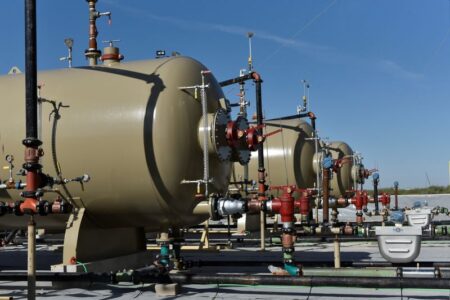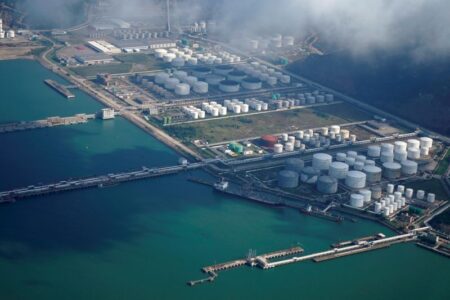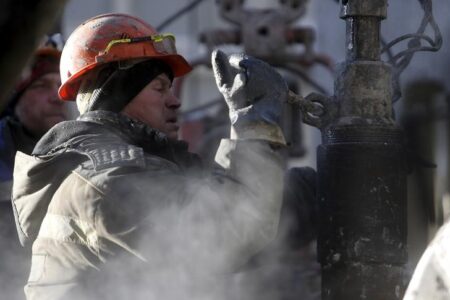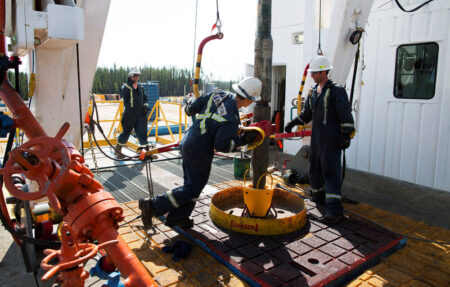By Sabrina Valle
HOUSTON (Reuters) -Exxon Mobil Corp on Friday posted a sharply lower $9.1 billion third-quarter profit, missing analysts’ estimates for the second quarter in a row, and off 54% from a year ago.
Earnings by the largest U.S. oil producer have benefited from higher prices compared to the previous quarter and greater demand for gasoline and diesel, but prices are well off record year-ago levels.
Shares fell about 2% in morning trade to $105.55 as per-share profit of $2.25 was 5% below analysts’ forecasts for $2.37 per share. A year ago, the company earned $4.68 per share when oil and gas prices climbed following Russia’s invasion of Ukraine.
Results came “broadly in line” with market expectations, according to RBC analyst Biraj Borkhataria, but profit from motor fuels and chemicals were below recent expectations and sharply less than a year ago.
Exxon (NYSE:)’s oil and gas pumping business was hurt by a 60% drop in prices compared with a year ago, and a 14% drop in crude oil prices, the company said.
REFINING, CHEMICALS HURT
Refined products and chemical profits fell by more than half that of a year ago, with lower margins for gasoline and diesel and foreign exchange clipping results.
Chemical third-quarter earnings were $249 million, down from $828 million in the second quarter due to higher raw material costs.
Exxon’s oil and gas output dropped about 1% compared with the same quarter a year ago. It aims to finish the year with production averaging 3.7 million barrels of oil and gas per day.
The company recently struck two deals that will boost future output. It agreed to buy shale rival Pioneer Natural Resources (NYSE:) for $59.5 billion and carbon pipeline operator Denbury for $4.9 billion.
“The whole strategy is around making sure that we have the best portfolio and the most resilient portfolio,” said Exxon Chief Executive Darren Woods on a call to discuss results.
The all-stock acquisitions have not hurt the company’s balance sheet. Exxon’s cash reserves rose 10% over the second quarter to $33 billion.
“We feel really good about our cash balance,” Chief Financial Officer Kathryn Mikells said in an interview. “It puts us in a good position to ultimately ensure we have the flexibility we need when eventually the commodity cycle turns against us.”
Exxon said it achieved a targeted $9 billion reduction in costs compared with 2019 levels, and pledged to continue cost-cutting.
Its full-year capital expenditures will finish at the top end of its $23 billion to $25 billion guidance, executives said.
The company has been selling assets around the world as it focuses on more lucrative projects in U.S. shale and in Guyana, and it recently put its Italy refinery up for sale.
Exxon also concluded in the third quarter the sale of a refinery in Thailand and received $900 million in proceeds, raising asset sales this year to $3.1 billion.
Mikells said she did not anticipate an acceleration of asset sales following the Pioneer acquisition.
That purchase will more than double Exxon’s Permian production to 1.3 million barrels of oil and gas per day after the acquisition is concluded in the first half of next year.
Higher production from Guyana and the Permian provided a partial offset to lower crude and natural gas realizations and divestments, compared with last year, the company said.
Read the full article here












